Femia > Health Library > Getting Pregnant > Trying to conceive > 7 DPO: What to expect, and how to tell if you’re pregnant
7 DPO: What to expect, and how to tell if you’re pregnant
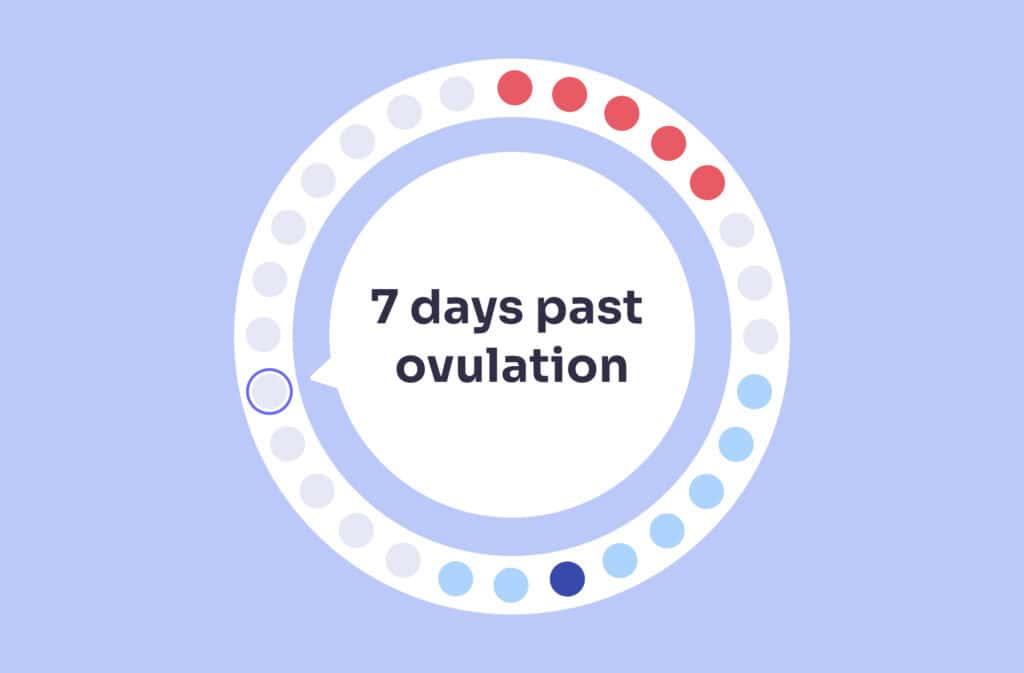
- Updated Feb 25, 2025
- Published
CRAFTED BY HUMAN
Crafted by human At Femia, we provide accurate and up-to-date information at every stage of your journey, from trying to conceive, pregnancy and postnatal support. All content is created by a real person based on in-depth research and own professional experience. Femia ensures that you will receive expert advice, strict accuracy and a personalized approach from our authors/medical experts. Learn more about our editorial policy.
FACT CHECKED
Fact checked At Femia Health, we maintain the highest standards of editorial excellence in delivering content focused on helping you conceive, guiding you through pregnancy, and supporting you postpartum. Explore our content review principles to learn how we ensure the accuracy and quality of our health and lifestyle tips for every stage of your journey.
At 7 DPO (7 days post ovulation):
- Implantation may be occurring for some women, marking the beginning of pregnancy.
- Hormone levels continue to rise, with progesterone taking center stage.
- Early pregnancy symptoms may start for some, but don’t worry if you’re not feeling anything yet!
- While it’s still early for a pregnancy test, some highly sensitive tests might detect pregnancy in rare cases.
Welcome to the 7 DPO stage of your journey! This guide is your friendly companion through the exciting (and sometimes confusing) journey of what’s happening in your body at 7 days past ovulation.
➡️ Read other Femia guides in this series:
- 1 DPO: What to expect, and how to tell if you’re pregnant
- 2 DPO: What to expect, and how to tell if you’re pregnant
- 3 DPO: What to expect, and how to tell if you’re pregnant
- 4 DPO: What to expect, and how to tell if you’re pregnant
- 5 DPO: What to expect, and how to tell if you’re pregnant
- 6 DPO: What to expect, and how to tell if you’re pregnant
- 8 DPO: What to expect, and how to tell if you’re pregnant
- 9 DPO: What to expect, and how to tell if you’re pregnant
- 10 DPO: What to expect, and how to tell if you’re pregnant
- 11 DPO: What to expect, and how to tell if you’re pregnant
- 12 DPO: What to expect, and how to tell if you’re pregnant
- 13 DPO: What to expect, and how to tell if you’re pregnant
- 14 DPO: What to expect, and how to tell if you’re pregnant
- 15 DPO: What to expect, and how to tell if you’re pregnant
- 16 DPO: What to expect, and how to tell if you’re pregnant
What does 7 DPO really mean?
7 DPO stands for “7 days post ovulation.” It’s like your body’s way of saying, “Hey, it’s been a week since we released that egg!”
You’re now solidly in the second half of your menstrual cycle, known as the luteal phase. During this time, your body is busy preparing for the possibility of pregnancy, whether or not fertilization has actually occurred.
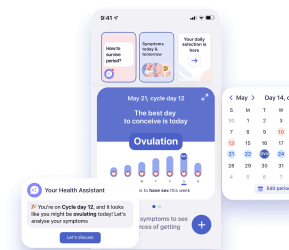
What's happening in your body at 7 DPO?
At 7 DPO, your body is a hive of activity, even if you can’t feel it. Here’s what might be happening:
- Potential implantation. If fertilization occurred, the little embryo might be snuggling into your uterine lining right about now. This process typically happens between 6-12 days after ovulation, so 7 DPO is prime time for implantation.
- Hormone party. Your body is ramping up production of progesterone, the pregnancy-supporting hormone. It’s your body’s way of creating a cozy environment for a potential baby.
- Uterine prep work. Your uterine lining continues to thicken, becoming a perfect cushiony landing pad for a fertilized egg.
- Cervical changes. Your cervix might be starting to change position and consistency, though these changes can be subtle.
👉Find out more: How long after sex does implantation occur: Understanding the timeline
7 DPO symptoms: What might you be feeling?
Now, let’s talk about those 7 DPO symptoms. Remember, everyone’s body is different, so you might experience all, some, or none of these. And that’s perfectly okay!
Here’s what some women report feeling:
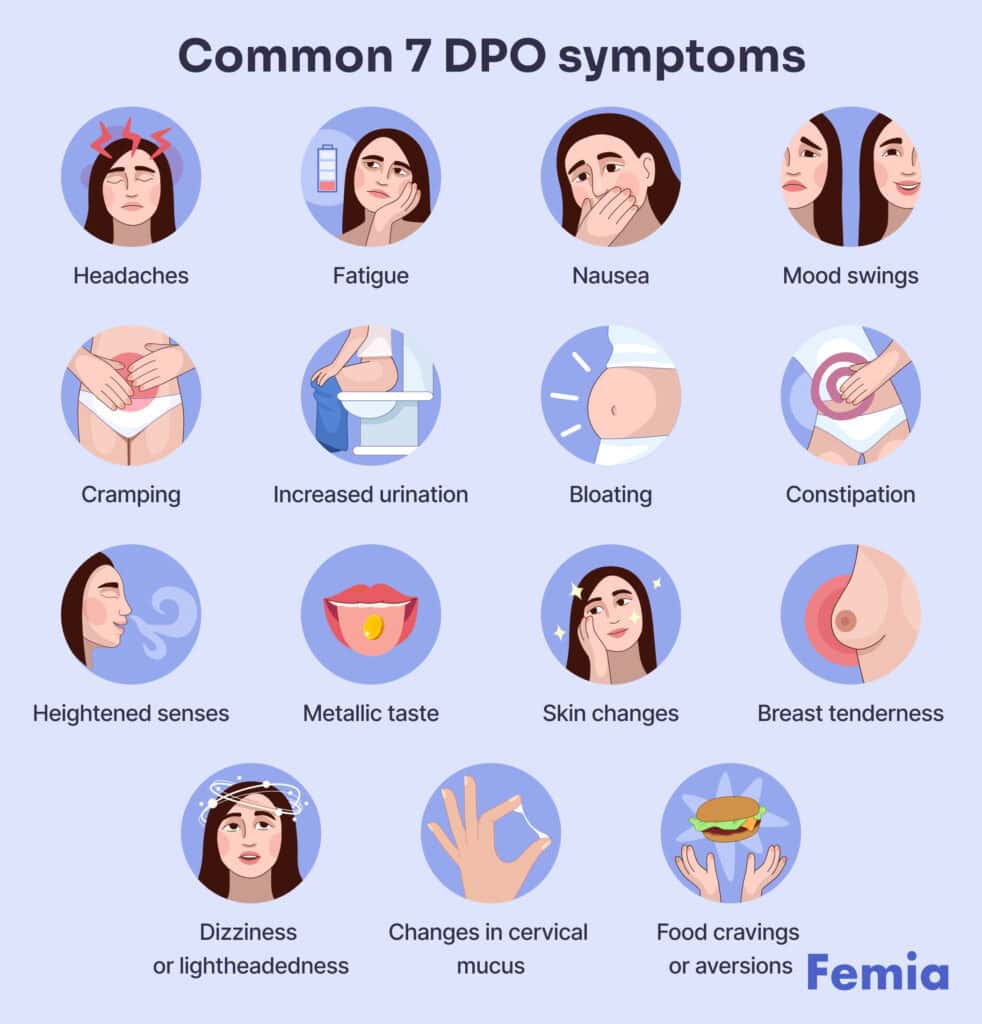
- Cramping. Some women experience 7 DPO cramping. It could be related to implantation or just your uterus responding to hormonal changes.
- Breast changes. Your breasts might feel tender, swollen, or even a bit tingly. They might also look a bit different, with more prominent veins or darker nipples.
- Fatigue. Feeling like you could use a nap… or three? That’s normal! Your body is working overtime right now.
- Nausea. While full-blown morning sickness usually comes later, some women report feeling a bit queasy at 7 DPO.
- Mood swings. Feeling more emotional than usual? Blame it on the hormones!
- Changes in cervical mucus. Your 7 DPO cervical mucus might become thicker or creamier.
- Bloating. You might feel a bit puffy or bloated, similar to how you feel before your period.
- Headaches. Hormonal changes can sometimes trigger headaches.
- Heightened senses. Some women report a more honed sense of smell or taste.
- Food cravings or aversions. Suddenly can’t stand the smell of your favorite food? Craving something unusual? It could be early pregnancy symptoms.
- Dizziness or lightheadedness. Some women report feeling a bit dizzy or lightheaded due to hormonal changes and increased blood volume.
- Constipation. Hormonal changes can slow down your digestive system.
- Increased urination. You might find yourself making more trips to the bathroom.
- Skin changes. Some women notice changes in their skin, like increased oiliness or even signs of an early pregnancy glow.
- Metallic taste. A few women report a metallic taste in their mouth as an early pregnancy symptom.
Remember, experiencing these symptoms doesn’t guarantee pregnancy, and not having them doesn’t mean you’re not pregnant. Our bodies love to keep us guessing sometimes!
7 DPO discharge: What's normal?
At 7 DPO, your discharge might be giving you clues about what’s going on inside. Here’s what you might see:
- An increase in creamy, white discharge;
- Thick, sticky discharge;
- Little to no change in discharge.
If you’re pregnant, you might notice that your discharge is a bit more abundant or creamier than usual. But here’s the tricky part: these changes can happen whether or not you’re pregnant. So while it’s tempting to analyze every change, try not to read too much into it.
👉Find out more: Ultimate pre-pregnancy checklist: Essential steps to take before having a baby
Can I take a 7 DPO pregnancy test?
We totally get the urge to take a pregnancy test at 7 DPO. But is 7 DPO too early to test? Well, in most cases, yes. Here’s why:
- Implantation timing. While implantation can occur at 7 DPO, it often happens within the next few days. Without implantation, your body won’t produce detectable levels of hCG (the pregnancy hormone).
- hCG levels. Even if implantation has occurred, it takes time for hCG levels to rise sufficiently to be detected by a test.
- Test sensitivity. Most home pregnancy tests aren’t sensitive enough to detect the very low levels of hCG present immediately after implantation.
While it’s rare, some women do report getting a 7 DPO positive pregnancy test. But these are the exceptions, not the rule.
For the most reliable results, try to wait until at least the day of your expected period. We know it’s hard, but your patience will pay off with a more accurate result!
with confidence

Understanding 7 DPO pregnancy test pictures
You might have seen 7 DPO pregnancy test pictures floating around online. Let’s break down what you’re seeing and what it means:
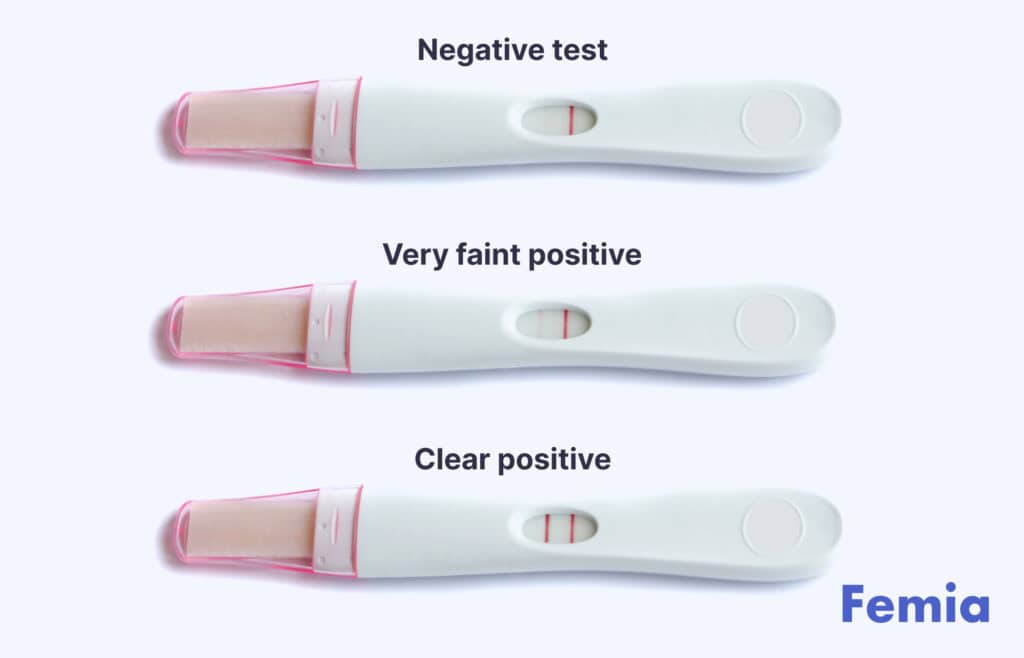
Negative test. This is what most 7 DPO tests will look like. You’ll see only the control line, indicating the test worked correctly but didn’t detect hCG.
Very faint line. Sometimes, you might see a second line that’s so faint you’re not sure if it’s really there. This could be the start of a positive result, but it could also be an evaporation line or a false positive. If you see this, wait a few days and test again.
Clear positive. While rare at 7 DPO, some women do get a clear positive result. This appears as two distinct lines of similar intensity.
Remember, the darkness of the line doesn’t necessarily indicate the strength of the pregnancy at this early stage. Every woman’s body is different, and hCG levels can vary greatly at 7 DPO.
If you do decide to test this early, keep in mind that a negative result doesn’t mean you’re not pregnant—it could just be too early to detect. And if you see a faint line, try to resist the urge to test every day. Wait a few days and test again for a clearer result.
Questions from the Femia community
Is 7 DPO cramping a definite sign of implantation?
While 7 DPO cramping could be a sign of implantation, it's not a guarantee. Cramping at this stage can also be caused by normal hormonal fluctuations in your cycle. If you're experiencing cramping, it's worth noting, but remember that only a positive pregnancy test can confirm pregnancy.
Can the type of discharge at 7 DPO indicate pregnancy?
Oh, if only it were that simple! Discharge can vary greatly from woman to woman and cycle to cycle. While some women report changes to their discharge early in pregnancy, there's no specific type of 7 DPO discharge that indicates pregnancy. The most reliable way to confirm pregnancy is still with a pregnancy test.
How common is 7 DPO nausea in early pregnancy?
While some women report experiencing nausea as early as 7 DPO, it's not super common. Nausea, often called "morning sickness" (though it can happen any time of day), typically starts a bit later in pregnancy. If you're feeling nauseous at 7 DPO, it could be due to hormonal changes, but it's not a definitive sign of pregnancy.
Can I have a beer at 7 DPO, or should I abstain just in case?
Great question! If you're trying to conceive, it's generally recommended to avoid alcohol during the two-week wait. While a single drink at 7 DPO is unlikely to affect a potential pregnancy, many healthcare providers advise erring on the side of caution. Remember, at 7 DPO, you won't know for sure if you're pregnant yet.
I'm not feeling any symptoms at 7 DPO. Does this mean I'm not pregnant?
Not at all! Many women don't feel any different in the early days after ovulation, whether they're pregnant or not. The absence of symptoms doesn't rule out pregnancy, just as having symptoms doesn't guarantee it. Every woman's body responds differently to early pregnancy.
Is it normal to feel extremely tired at 7 DPO?
Absolutely! Fatigue is a common symptom in early pregnancy, and some women report feeling extra tired as early as 7 DPO. However, fatigue can also be caused by the normal hormonal changes of your menstrual cycle. Either way, listen to your body and get some extra rest if you need it.
Can stress affect implantation at 7 DPO?
While stress can affect your overall health and fertility, there's no direct evidence that it prevents implantation. At 7 DPO, try to focus on self-care and relaxation techniques to support your overall well-being during this waiting period.
The bottom line
At 7 DPO, your body is hard at work preparing for the possibility of pregnancy. While some women may start to notice early symptoms, many won’t feel any different at this stage. It’s generally too early for a reliable pregnancy test, so the best approach is to continue taking care of yourself and try to stay patient (we know it’s tough!).
Remember, whether you’re experiencing cramping, changes in discharge, or other symptoms, your journey is unique. There’s no “right” way to feel at 7 DPO. Some women swear they knew they were pregnant from the start, while others don’t feel a thing until they’re picking out nursery colors. Both experiences are completely normal!
Be kind to yourself during this waiting period. Your body is doing amazing things, whether or not this cycle results in pregnancy. Treat yourself with the same compassion and understanding you’d offer a good friend. You’ve got this!
➡️ Read other Femia guides in this series:
- 1 DPO: What to expect, and how to tell if you’re pregnant
- 2 DPO: What to expect, and how to tell if you’re pregnant
- 3 DPO: What to expect, and how to tell if you’re pregnant
- 4 DPO: What to expect, and how to tell if you’re pregnant
- 5 DPO: What to expect, and how to tell if you’re pregnant
- 6 DPO: What to expect, and how to tell if you’re pregnant
- 8 DPO: What to expect, and how to tell if you’re pregnant
- 9 DPO: What to expect, and how to tell if you’re pregnant
- 10 DPO: What to expect, and how to tell if you’re pregnant
- 11 DPO: What to expect, and how to tell if you’re pregnant
- 12 DPO: What to expect, and how to tell if you’re pregnant
- 13 DPO: What to expect, and how to tell if you’re pregnant
- 14 DPO: What to expect, and how to tell if you’re pregnant
- 15 DPO: What to expect, and how to tell if you’re pregnant
- 16 DPO: What to expect, and how to tell if you’re pregnant
References
- Practice Committee of the American Society for Reproductive Medicine. “Optimizing Natural Fertility: A Committee Opinion.” Fertility and Sterility, vol. 107, no. 1, 2017, pp. 52-58. National Library of Medicine, https://pubmed.ncbi.nlm.nih.gov/28228319/.
- American College of Obstetricians and Gynecologists. “Early Pregnancy Loss.” ACOG Practice Bulletin No. 200. Obstetrics & Gynecology, vol. 132, no. 5, 2018, pp. e197-e207. https://www.acog.org/clinical/clinical-guidance/practice-bulletin/articles/2018/11/early-pregnancy-loss.
- National Institutes of Health. “What are some common signs of pregnancy?” National Institute of Child Health and Human Development, 2017, https://www.nichd.nih.gov/health/topics/pregnancy/conditioninfo/signs.
- Mayo Clinic Staff. “Home pregnancy tests: Can you trust the results?” Mayo Clinic, 2022, https://www.mayoclinic.org/healthy-lifestyle/getting-pregnant/in-depth/home-pregnancy-tests/art-20047940.
- U.S. Food and Drug Administration. “Pregnancy.” FDA, 2019, https://www.fda.gov/medical-devices/home-use-tests/pregnancy.
- Norwitz, Errol R., et al. “Implantation and the Survival of Early Pregnancy.” New England Journal of Medicine, vol. 345, no. 19, 2001, pp. 1400-1408. National Library of Medicine, https://pubmed.ncbi.nlm.nih.gov/11794174/.
- Cole, Laurence A. “Biological Functions of hCG and hCG-Related Molecules.” Reproductive Biology and Endocrinology, vol. 8, no. 1, 2010, p. 102. National Library of Medicine, https://www.ncbi.nlm.nih.gov/pmc/articles/PMC2936313/.
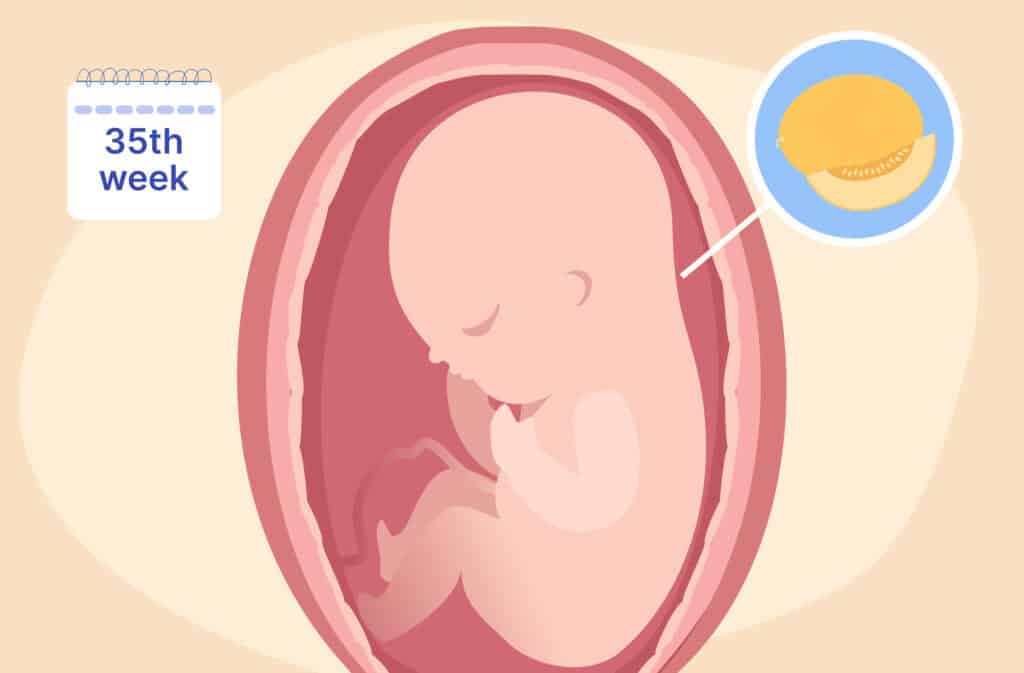
Discover what happens at 35 weeks pregnant, from baby development and symptoms to concerns about sex and breastfeeding benefits.
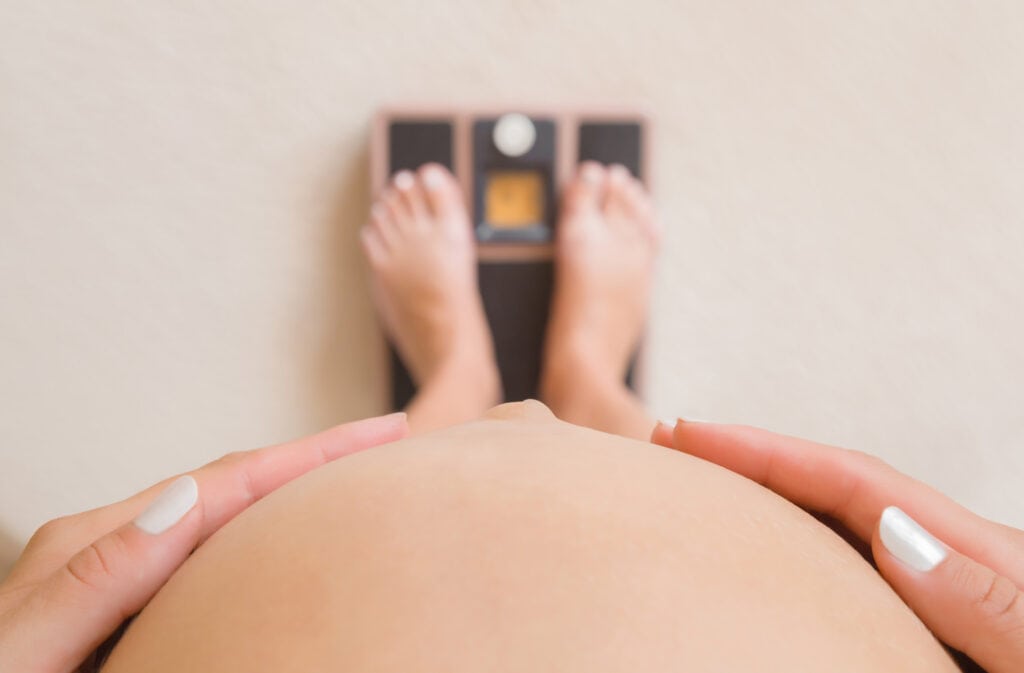
Understand why you’re gaining weight so fast during pregnancy first trimester. Learn about normal weight changes, including why you might be losing weight during 1st or 2nd trimester. Expert advice from Femia.
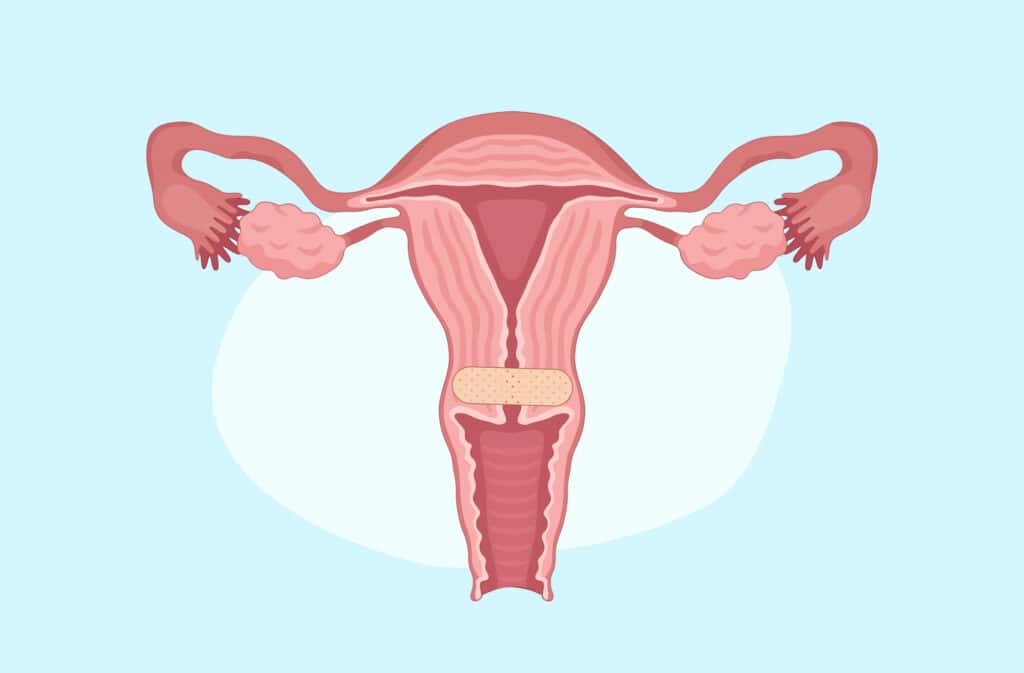
How can your cervix get bruised and what are the telltale signs? Learn how to recognize bruised cervix symptoms after sex and know when to seek help.

